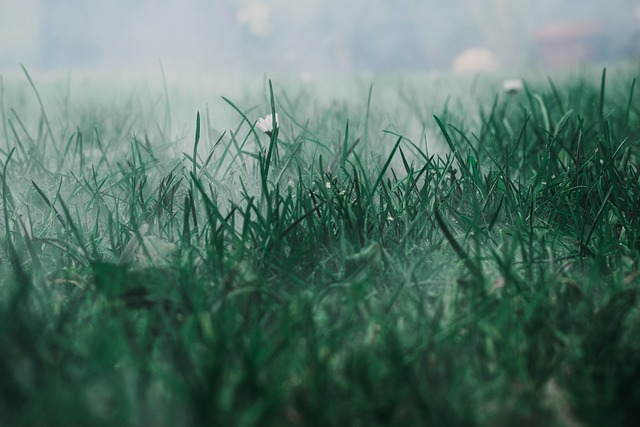In an era where screen time is skyrocketing and our lives are increasingly dictated by digital interactions, the phrase “touch grass” has become more than just online banter. It’s a literal and figurative call to reconnect with the Earth. What seems like a simple act—walking barefoot on grass or soil—is actually rooted in a wellness practice called grounding, or earthing. And while it may sound like another lifestyle trend, its benefits are backed by growing research and centuries of intuitive living.
Let’s dive into how this natural, cost-free habit could become one of the most effective health practices you add to your life.
What is Grounding, Really?
Grounding, or earthing, refers to the physical act of connecting your body directly with the Earth—typically by standing, walking, or lying on natural surfaces like grass, soil, or sand. The concept revolves around the idea that our bodies are meant to be in sync with the Earth’s electrical energy, but modern living has severed this link. Rubber-soled shoes, urban environments, and indoor lifestyles all insulate us from the natural grounding we once experienced every day.
When you touch the Earth, especially with bare feet, it’s believed that electrons from the ground can flow into the body. This subtle electrical exchange may help neutralize free radicals, reduce inflammation, balance cortisol levels, and improve physiological functioning.
Why Touching Grass is More Than Just a Meme
It’s easy to dismiss the “touch grass” phrase as a joke, but once you begin to understand its implications for both mental and physical health, it becomes something worth paying attention to.
Touching grass connects us back to something primal. There’s a reason people feel a sense of calm after walking barefoot on a beach or sitting under a tree in the park. Nature recalibrates us. It slows down our racing thoughts, regulates our nervous systems, and gently reminds our bodies how to rest, heal, and thrive.
This isn't about abandoning technology or your lifestyle; it's about intentionally integrating small habits that restore balance.
The Mental Health Benefits You Can Feel
One of the most immediate benefits of grounding is its effect on stress and mental well-being. When you stand barefoot on natural surfaces, your body begins to shift from a sympathetic state (fight-or-flight) to a parasympathetic state (rest-and-digest). This shift reduces the production of stress hormones like cortisol, helping you feel more relaxed and clear-headed.
In a world riddled with overstimulation, social pressure, and digital burnout, grounding provides an opportunity to pause. It promotes mindfulness. You start to pay attention to how the grass feels beneath your feet, how the sun warms your skin, and how the breeze moves through the trees. These small observations anchor you in the present moment—a cornerstone of good mental health.
People who regularly spend time grounding often report enhanced mood, better emotional regulation, and a stronger connection to themselves and their surroundings. It’s an organic antidote to the mental clutter of modern life.
The Physical Perks Go Beyond Skin Deep
While the psychological benefits are powerful, grounding may also influence your physical health in meaningful ways. One of the biggest claims made about grounding is its ability to reduce inflammation. Inflammation is the underlying cause of many chronic illnesses—from heart disease to arthritis. When the body connects with the Earth’s negative charge, it may help neutralize oxidative stress caused by free radicals.
Many individuals practicing grounding report reduced muscle soreness, fewer headaches, and even faster recovery from workouts or injury. Some have noticed lower levels of chronic pain after making it a consistent part of their daily routine.
Grounding has also been associated with improved sleep. The calming effect it has on the nervous system could help regulate circadian rhythms, making it easier to fall asleep and stay asleep through the night. Considering the number of people struggling with sleep disorders, this natural practice could offer significant relief.
How to Start Grounding in Your Daily Life
You don’t need to hike deep into the woods or book a nature retreat to enjoy the benefits of grounding. It can be as simple as walking barefoot in your backyard for ten minutes a day. The key is consistency and intention.
Try incorporating grounding into your morning routine. Stand on your lawn with a cup of tea and just breathe. Let your body wake up in sync with the Earth’s energy. If you work from home, take your laptop outside and work barefoot for part of the day. Even urban dwellers can find small patches of grass in nearby parks or rooftops.
The practice can also be meditative. Use it as a moment of stillness and reflection, away from the pings and notifications. It’s a time to come back to your senses—literally and metaphorically.
A Detox for the Modern Mind
Think of grounding as a digital detox for your nervous system. Just like you need breaks from your phone, your body and mind need breaks from overstimulation. Grounding helps reset your internal rhythm. It offers a deep breath in a noisy world.
You may notice changes in your mood and energy levels within a few days of regular practice. It might start as a subtle shift—a bit more calm, a little less anxiety, a deeper sleep. Over time, these small changes accumulate into a noticeable transformation.
Back to Basics, Forward to Health
Touching grass may be one of the most underrated health practices out there. It requires no equipment, no gym membership, no supplements—just time, awareness, and a patch of Earth. In a world chasing complicated wellness solutions, the simplicity of grounding is refreshing. It's a reminder that sometimes, the most powerful medicine comes from the natural world, not from a bottle.
By embracing this small, consistent habit, you’re not just reconnecting with nature—you’re reconnecting with yourself.
So the next time life feels overwhelming, the noise too loud, and the stress too high, step outside, take off your shoes, and touch grass. Your body—and your mind—will thank you for it.
